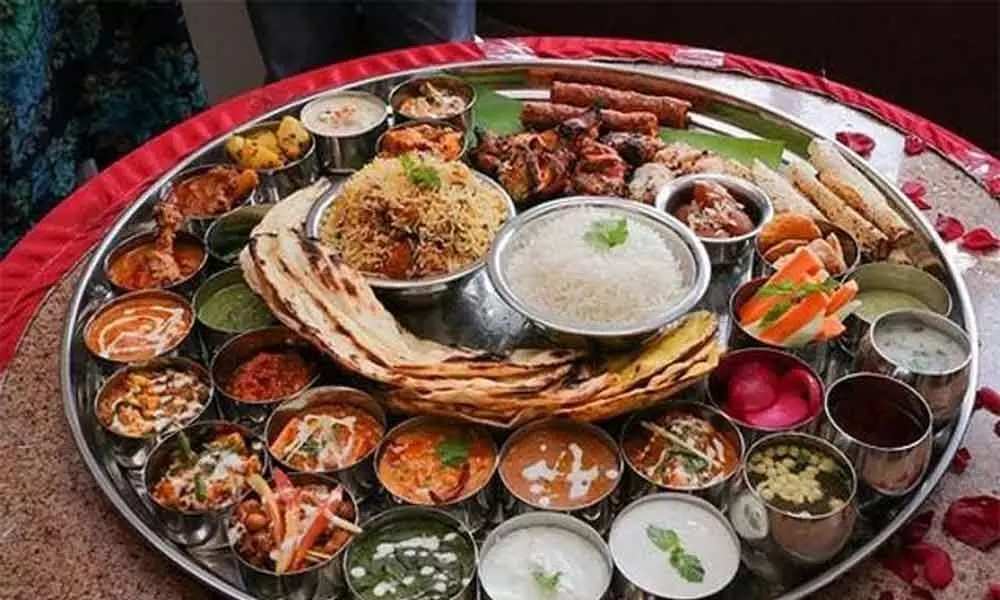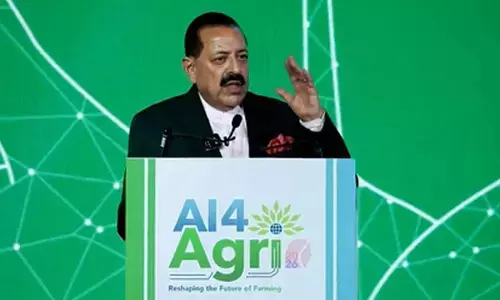Veg 'thali' affordability improved more than non-veg'

In India, affordability of vegetarian 'thalis' improved more compared to non-vegetarian 'thalis' in last 13 years, stated the Economic Survey 2019-20, which was presented in Parliament on Friday.
New Delhi:In India, affordability of vegetarian 'thalis' improved more compared to non-vegetarian 'thalis' in last 13 years, stated the Economic Survey 2019-20, which was presented in Parliament on Friday.
Affordability of vegetarian 'thalis' improved by 29 per cent while that for non-vegetarian 'thalis' by 18 per cent from 2006-07 to 2019-20, said the survey.
Affordability of 'thalis' is calculated with regard to a day's pay of a worker. Affordability of 'thalis' vis-A-vis a day's pay of a worker has improved over time, indicating improved welfare of the common person, said Union Finance Minister Nirmala Sitharaman.
The analysis has been drawn on the basis of 'Thalinomics: The Economics of a Plate of Food in India' - an attempt to quantify what a common person pays for a 'thali' across India.
Using the dietary guidelines for Indians, the price of 'thalis' are constructed. Price data from the Consumer Price Index for industrial workers for around 80 centres in 25 states and Union Territories from April 2006 to October 2019 has been used for the study.
The survey states that across India and also the four regions - North, South, East and West - it is found that the absolute prices of a vegetarian 'thali' have decreased significantly since 2015-16 though the price has increased in 2019.
This is owing to the sharp downward trend in the prices of vegetables and dal in contrast to the previous trend of increasing prices.
As a result, an average household of five individuals that eats two vegetarian 'thalis' a day, gained around Rs 10,887, on average per year, while a non-vegetarian household gained Rs 11,787, on average per year.
The survey states that 2015-16 can be considered as a year when there was a shift in the dynamics of 'thali' prices. Many reform measures were introduced since 2014-15 to enhance the productivity of the agricultural sector as well as efficiency and effectiveness of agricultural markets for better and more transparent price discovery.
It says that food is not just an end in itself but also an essential ingredient in the growth of human capital and therefore important for national wealth creation. "Zero hunger" has been agreed upon by nations of the world as a Sustainable Development Goal (SDG).








